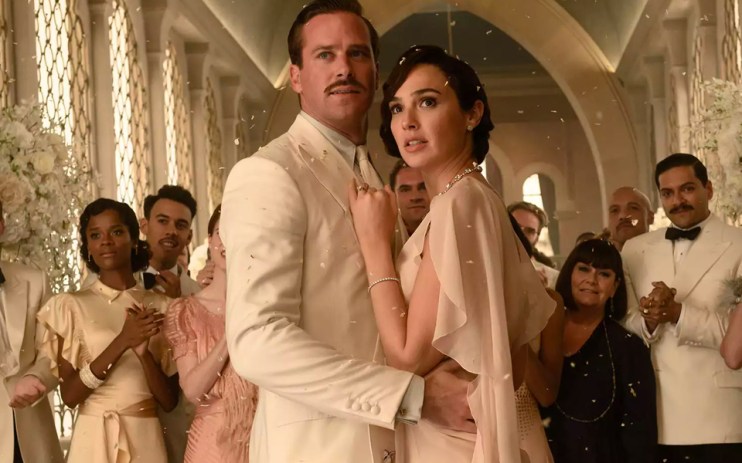Death On The Nile review – a sedate but slick whodunnit

The sequel to 2017’s Murder On The Orient Express has a problem that its studio doesn’t want to address. One of its key players is Armie Hammer, who early last year was accused of abusing former partners. While Hammer denies the allegations, which range from emotional abuse to cannibalism fantasies, the victims’ statements were enough to have him removed from his agency and future projects.
Death On The Nile, however, wrapped two years ago, and his character’s key involvement mean that reshooting the film a la Kevin Spacey in All The Money In The World is impractical. Can Sir Kenneth Branagh, riding high thanks to seven Oscar nominations for Belfast this week, overcome the problematic elephant in the room?
Branagh again directs and stars as Hercule Poirot, Agatha Christie’s world-famous detective who is convinced by old friend Bouc (Tom Bateman) to attend the elaborate honeymoon celebrations of socialite Linnet (Gal Gadot) and her penniless husband Simon (Hammer). The celebrations in Egypt are cut short by the arrival of Jacqueline (Emma Mackey), Linnet’s former best friend and Simon’s ex-fiancée. When her presence derails their happiness, the couple and their guests escape to a private cruise on the Nile. However, once bodies begin appearing, Poirot must look past the lies to solve the case.
Behind the camera, Branagh has always been an exceptional visual filmmaker. From the extravagance of his 1996 Hamlet adaptation, to our first glimpse of Asgard in Thor, he has the ability to produce spectacle no matter the genre. As such, it’s no surprise that his take on The Nile is a dream of 1930s opulence. Gorgeous people in gorgeous clothes saunter around the decks in a manner that would please Christie were she here to see it.
Plot-wise, it’s compelling if over-stuffed. Side plots, like a pre-title sequence in the trenches, feel like pit stops rather than big reveals. However, when it isn’t distracted, the film sails along excitedly. The frantic tracking shot after the first attack, the overdramatic killings, it’s all a lot of fun if you’re in the right mood. While the hammy dialogue can induce some winces, it fits the grandiose setting, and certainly doesn’t lose its way in the same manner as Orient Express.
Rather than run through a school register of the sizeable cast, it’s best to point out those who stood out, for better or worse. Annette Bening and Jennifer Saunders are frustratingly melodramatic as distant rich relatives of the couple, who should have swapped roles (and dodgy accents). Russell Brand and Rose Leslie have little to do other than mope as people from Linnet’s past, while Ali Fazal is charming but mostly redundant as her cousin and lawyer. In this type of film, you need a lot of suspects, meaning not every role is fleshed out.
On the plus side, Dawn French has some interesting scenes as the valet of Saunders’ character, while Sex Education star Mackey eats up the femme fatale role. Gal Gadot is as elegant as ever, but far from the star performer. That honour should go to Branagh, who clearly loves playing Poirot and does his best to give the idiosyncratic sleuth some emotional punch. He has a wonderful scene partner in Bateman, with the two getting the right balance of tension and comedy as the scene requires.
As for hammer, he’s the same a brutish alpha male he was in Ben Wheatley’s Rebecca. The fact that his character is not meant to be liked helps the feeling of unease, as does the idea that this may be his last film for a long time.
Overall, Death On The Nile is an entertaining whodunit, the kind of film designed to bring in the older audiences that are still hesitant to return to cinemas. Branagh’s other film may bring in the plaudits, but this sequel will crack the case for fans of its predecessor.